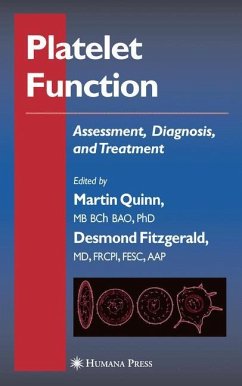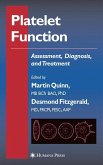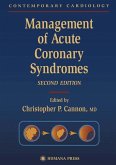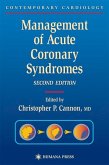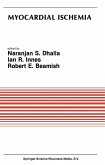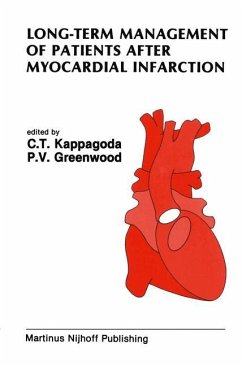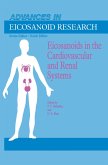A cutting-edge review of the latest findings on the complexities of platelet function and the various means of inhibiting platelet clot formation. The authors delineate an up-to-date picture of platelet biology and describe methods for assessing platelet function, including the commonly used platelet aggregation, thromboxane production, procoagulant function, platelet function under flow, and the expression of platelet activation markers. The focus is both on the technology and the outcome of research on platelets, including the fast developing fields of proteomics and genomics and their application to platelet research. The clinical applications of the various methods for the assessment of platelet function in vivo, as well as antiplatelet therapy, are fully discussed. Platelet function, or clot formation, is difficult to assess, but extremely important because inadvertent or excessive platelet activation underlies many common cardiovascular disorders, such as myocardial infarction, unstable angina, and stroke. In Platelet Function: Assessment, Diagnosis, and Treatment, a panel of leading researchers and clinicians review the latest findings on the complexities of platelet function and the various means of inhibiting platelet clot formation. The authors delineate an up-to-date picture of platelet biology and describe methods for assessing platelet function, including the commonly used platelet aggregation, thromboxane production, procoagulant function, platelet function under flow, and the expression of platelet activation markers. The focus is both on the technology and the outcome of research on platelets, including the fast developing fields of proteomics and genomics and their application to platelet research. The clinical applications of the various methods for the assessment of platelet function in vivo, as well as antiplatelet therapy, are fully discussed.
Comprehensive and state of the art, Platelet Function: Assessment, Diagnosis, and Treatment offers vascular researchers and clinicians a sound foundation for understanding platelet biology, assessing thrombotic risk in patients, and determining the rational dosing of antiplatelet agents.
Comprehensive and state of the art, Platelet Function: Assessment, Diagnosis, and Treatment offers vascular researchers and clinicians a sound foundation for understanding platelet biology, assessing thrombotic risk in patients, and determining the rational dosing of antiplatelet agents.
From the reviews: "...an outstanding book for those who want a concise review of platelet function and its relevance to thrombotic disorders and current pharmacology." - Circulation "...a very useful book for anyone interested in the fundamentals of platelet function, platelet biomarkers, techniques for activation measurement, and thrombotic disorders." - Circulation "This book is directed to the attention of clinicians practicing clinical and or laboratory medicine, basic scientists interested in platelet physiology, pharmocologists focusing on cardiovascular drugs, and teachers of medical students and physicians in training. ... The most advanced investigative techniques are presented in separate chapters to explore platelet membrane receptors, signal-dependant translation in platelets and for identifying products that regulate thrombosis and inflammation. ... a relatively small book, but with 397 pages of pertinent and practical knowledge from major professionals in the field." (Harry L. Messmore and William H. Wehrmacher, Clinical and Applied Thrombosis/Hemostasis, Vol. 12 (1), January, 2006)

